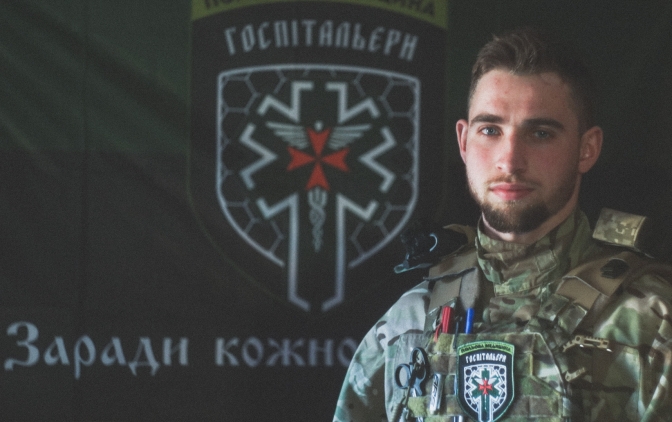
[For urgent updates please follow Ukrainian Freedom News on Telegram]
Oleh Dumych is a member of the «Hospitallers» volunteer corps. More than 100 soldiers of the battalion are currently at war with the Russian occupiers in eastern and southern Ukraine. Their task is to evacuate the wounded from the front line, stabilize their condition and transport them to a safer place. Oleh is now in the eastern direction. He is from Kamianka-Buzka, has an older brother Roman, who has lived in Vietnam for several years, a younger brother, Yurko, who also serves in the Armed Forces of Ukraine, and his youngest sister, Iryna. Lviv Now talked to the fighter about the Russian-Ukrainian war, its mission and tactics of volunteers.
About Hospitallers
I’ve heard about the «Hospitallers» since 2014, when Russia’s open war against Ukraine began. I heard about Yana Zinkevych [People’s Deputy of Ukraine, Commander of the Medical Battalion Hospitallers – Ed.] and this volunteer batalion. Later, in 2016, my relative Mykola Muravskyi went to fight in the East and also told something about them. He fought in the 8th Battalion «Aratta» of the Ukrainian Volunteer Army, and died a heroic death.
«Hospitallers» is a structural unit of the Ukrainian Volunteer Army. This is the structure created by Dmytro Yarosh. They are its medical wing, although they work with everyone else: providing assistance to civilians and being present at the positions of the Armed Forces of Ukraine. This is a fairly autonomous unit.
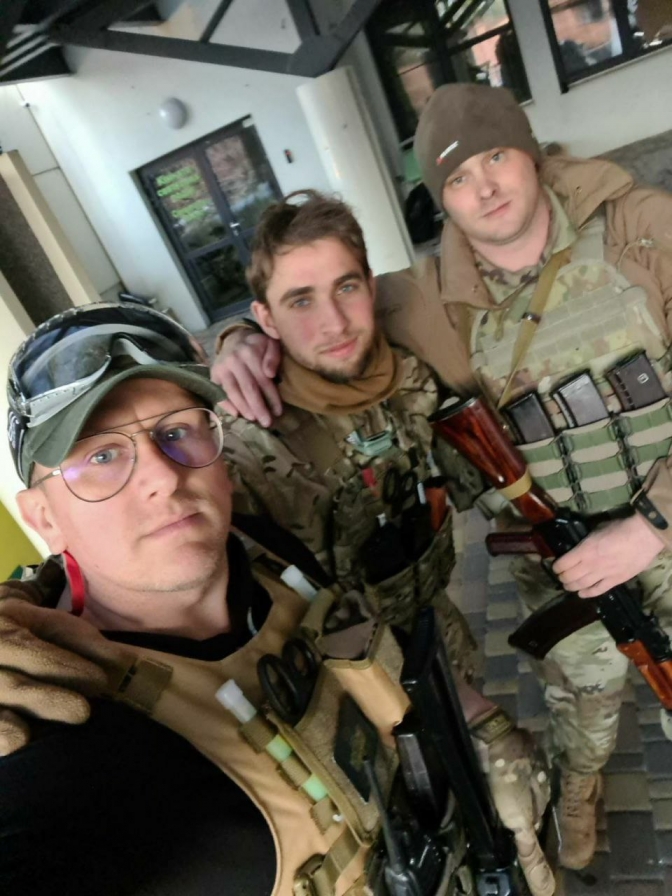
I liked the Hospitallers because I thought that if I went with a weapon, I would have to kill people. And here, they must be rescued. Maybe that’s why I subconsciously chose this way to help the front.
During the battles for Kyiv, most of the volunteer battalion was there. But there were crews stationed in the east, because there is our headquarters. Five or six crews, who were constantly on duty, remained there to perform combat missions, and several additional crews went to work in the South of Ukraine.
The main combat unit was concentrated in Kyiv, because we understood that the capital was a key priority and needed to be protected. To defend Kyiv means to defend our spiritual capital, the citadel, the fortress, and we will push the orcs further along the entire front line.
About the training of paramedics
I understood that a full-scale Russian invasion of Ukraine was a matter of time. But I had a desire to go to war, to see what it was and how. So in 2019, I signed up for training at the Hospitallers. They have a base in Pavlohrad, where they usually train. This is a week-long intensive, one of the best medical trainings in Ukraine. Training usually lasts two to three days. During all this time, we slept at the base, we were always there.
All instructors have combat experience. These are boys and girls who, so to say, have sniffed gunpowder, seen war, and not just taught theory. We ran to the base in bulletproof vests and helmets, jumped into the dug trenches. This is a training with night ascents, evacuations, where a lot of manipulations are done, starting from a simple practice of applying a tourniquet. You train until you start to fit into the required minimum time. You can do something at the table, and then, the instructor suddenly shouts «right hand» or «left foot», and the soldier has to put a tourniquet there. In the middle of the night, trainers wake you up and say «left foot», and you get up and put on a tourniquet. Or a combat alarm: you need to put on a bulletproof vest, helmet and run out of base. They say, «there is a wounded man in the forest», and put you in an ambulance and take you there to pull out the wounded man.
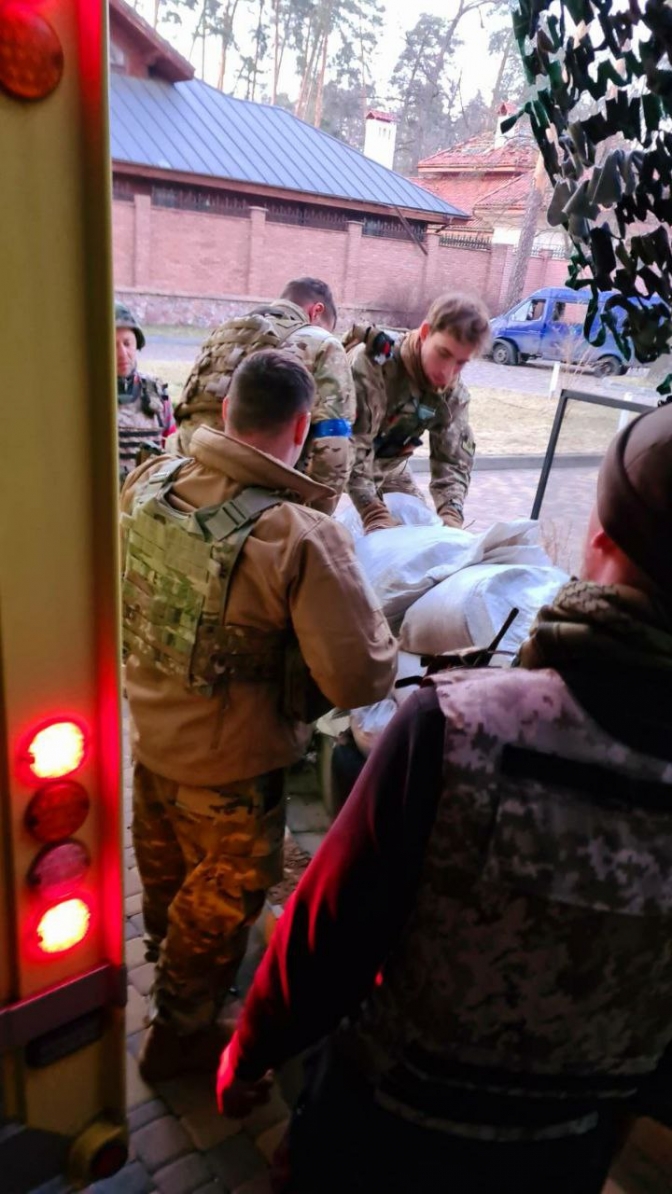
My group took more than one of our guys out of the front line: some were injured, some had leg injuries, some were taken to a hospital in the regional center, and some of them are bandaged daily at our stabilization point. We provide assistance to all, including civilians. Recently we have taken away one elderly woman with a disability. We are not assigned to any unit, we are where we are needed.
You should understand that there are still medics of the Armed Forces of Ukraine who are also taking our soldiers out of the front line. We provide assistance in those areas that are not as well provided with medical care and doctors as others.
About the first rotation
The first time I went on a rotation was in December 2020 after additional training, because, as my spiritual father says, «what you don’t train, you get it atrophied,» and I had a bit forgotten the practice for a year before that.
I was in sector «M». This is the sector whose main city was Mariupol and everything around it. This year, our military immediately withdrew from those positions, because the enemy artillery was working incredibly hard. At the same time, it was relatively calm, although the constant shelling continued. But it was a positional war, no one went on the offensive. From time to time, there was sniper and mortar fire.
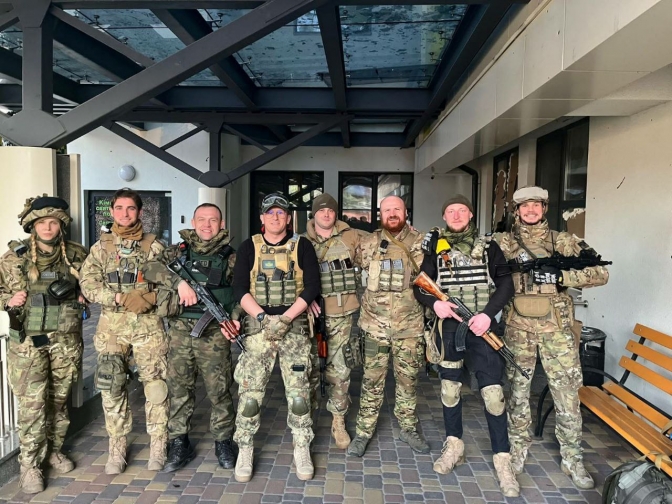
I stayed there for two and a half weeks. The position of our volunteer battalion was a little further from «zero», where the trenches of the units of the Armed Forces of Ukraine were dug, behind which the «gray zone» began. And the position of paramedics, as a rule, is a bit moved a few kilometers back, because it is not good for doctors to be under fire. They need a safer place to retrieve the wounded. From time to time, something came to the guys on the front line, and it was calm in our place.
I stood with a crew of marines from Mykolayiv. They had a small unit of six people who were with me in position. They were also a bit moved back, they had their own task. We slept together in one container for shipping.
About the volunteer battalion structure
We have a very well-provided battalion, for which we should praise Yana Zinkevych. A huge number of different medicines: American, Israeli, Ukrainian. It came to us, and we work with it. So we have almost everything from tactical medicine. Now we are forming stocks and warehouses, there is ordinary medicine, not just tourniquets and bandages, when it is necessary to provide first aid to the wounded. Painkillers belong to ordinary medicine too.
When we organize a new warehouse, we make different profiles. For example, intensive care, where the military and civilians come.
There is a central supply, which is organized by Yana Zinkevych through her contacts, because in addition to being a member of the Verkhovna Rada, she is also the chairman of the Committee on Veterans Affairs and is involved in the Ukrainian Volunteer Army.
Our fighters arrange part of the supply, they simply negotiate with their friends. A friend of mine, Bohdan Petryshak, the head of the UCU Humanitarian Staff, recently wrote to me asking if we needed first aid kits. I asked our people, and 45 first aid kits were sent to me from Lviv. We have more than 100 people like me, everyone has friends, volunteers who also bring them something.
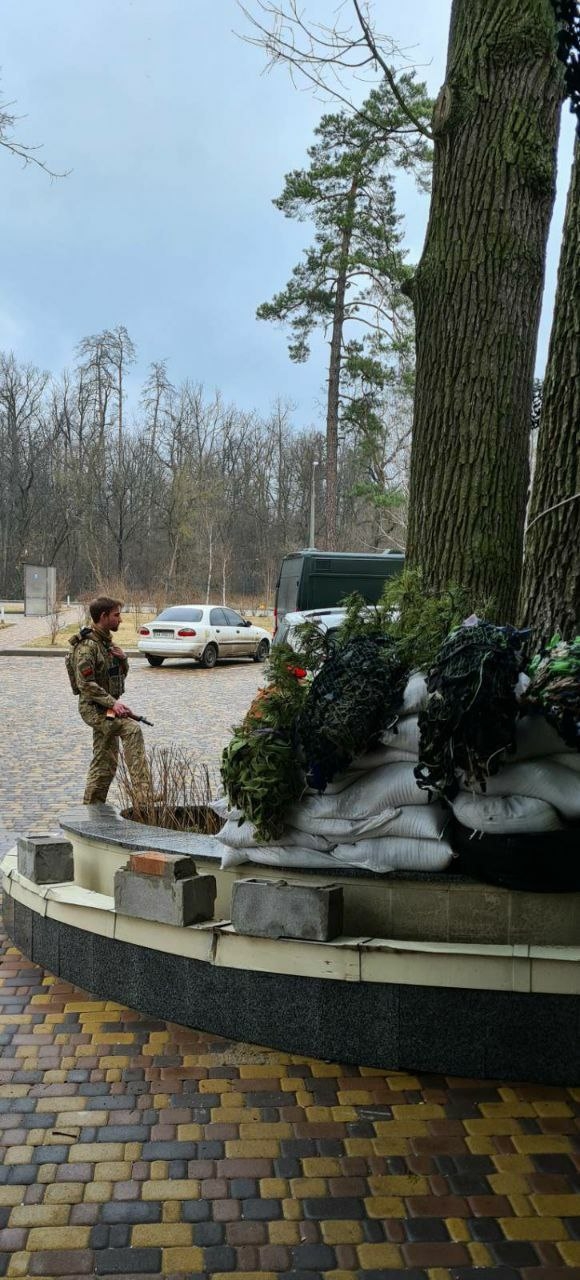
About the needs of battalion
We are in dire need of medical vehicles, not ambulances, but pickups that could take the wounded out of the front line. We already have 50 ordinary ambulances. They are good, modern, but only a pickup could take them out of the front line. This is called «tactical evacuation», and there is also «medical evacuation»: «ambulance», which takes from the point of combat. There is a certain stabilization point between them.
There is also a small logistics center in Lviv, where everything is transported from abroad, and from there, it is sent to Kyiv and further to the east. Now, we work like this: one pickup truck brings people to the stabilization point, and we take the wounded to the hospital.
Accordingly, we need pickups, vehicles for evacuation of the wounded, as well as night vision devices. Because in order to pick up the fighters from the front line at night, we go without headlights, almost by touch. When you turn on the headlights, you draw attention to yourself. That’s why we desperately need night vision devices, because without them, you drive very slowly and very uncertainly.
How to help the battalion:
Privat Bank 4731 2196 0050 4058 Yana Zinkevich (Зінкевич Яна)
Privat Bank 5168 7554 5634 9881 Anna Fedyanovich (Ганна Федянович)
Monobank 4441 1144 5575 9553 Tatiana Doroshenko (Дорошенко Тетяна)
Privat Bank 4149 6293 0118 1756 Olena Gerasimyuk (Герасим’юк Олена)
Privat Bank 5168 7573 9302 2654 Iryna Cherhava (Ірина Чергава)
Current account (PrivatBank – UAH) IBAN: UA933052990000026208895706239 Recipient: Anna Fedyanovich (Ганна Федянович) Recipient’s account: 26208895706239 Sort code of the bank: 305299. Individual identification number of the recipient: 2960215965
IBAN: UA893052990000026208866006560 Recipient: Zinkevych Yana Vadymivna (Зінкевич Яна Вадимівна). Individual tax number: 3488112209. Purpose of payment: account replenishment ZINKEVYCH YANA VADYMIVNA (ЗІНКЕВИЧ ЯНА ВАДИМІВНА)
By Roman Tyshchenko-Lamanskyi, translated by Kateryna Bortniak
Photo: Serhiy Hardkorchenko
Follow us on Facebook and Instagram. Lviv Now is an English-language website for Lviv, Ukraine’s «tech-friendly cultural hub.» It is produced by Tvoe Misto («Your City») media-hub, which also hosts regular problem-solving public forums to benefit the city and its people.


